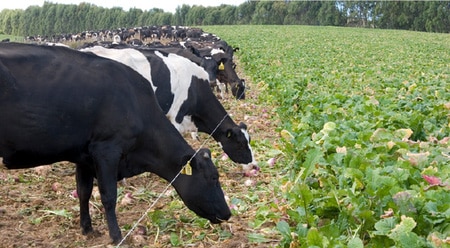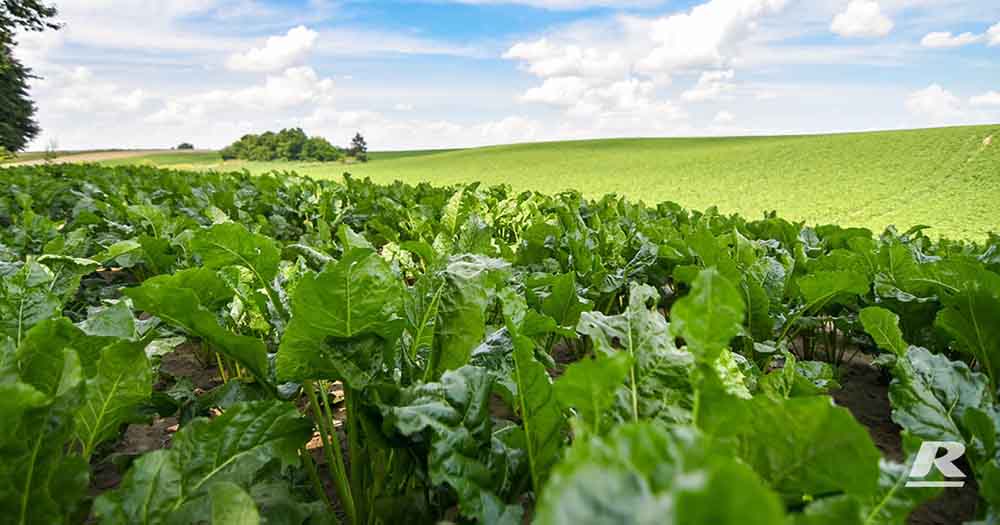Grazing Summer Crops
Although it doesn’t seem like it in some parts of the state, we are into summer and we have already started to see changes as we anticipate a period of hot and dry weather. We have been seeing a decline in pasture quality as plants go through their natural reproductive cycle resulting in low energy and protein and high in fibre. Feeding summer crops can provide a good source of protein and energy with low NDF during the summer months and therefore are an effective way to fill a feed gap in the diet during this time and try to mitigate production losses that may be experienced from the lack of quality pasture in the diet.
Summer crops are a useful tool for multiple classes of livestock: fattening cattle waiting to be finished, they’re available at the same time that spring lambs begin to be weaned or to fill a feed gap in a diet for dairy cows/heifers.
Some benefits of summer crops include:
- High yield potential
- Highly nutritional feed source
- Form part of a complementary forage rotation
- High forage quality
- Low establishment cost
- High water and nitrogen use efficiency
Management strategies for feeding summer crops
Strip Grazing
If given a whole paddock to graze over a few weeks, animals would selectively graze the plant leaf tips first which are full of protein and low fibre, followed by a period of leaf and stem which is better balanced then finally the remaining stem which is high in fibre resulting in an energy deficiency for the animals. To prevent an unbalanced diet as described, we need to ensure the animal consumes more of the whole plant in one go. By strip or block grazing we can encourage the animals to consume the leaf, stem and sometimes bulb of plants at one time to ensure the microbes in the rumen are provided with a constant supply of nutrients which are balanced resulting in optimised growth and/or production. Strip/block grazing also allows back fencing once the animals have moved to allow that area the potential of plant regrowth for another offer next rotation.
Feeding an Energy Source
As summer crops are high in protein, we need to offer an additional energy source to ensure the rumen microbes can utilise all the available protein. Without this extra energy source, the protein would be unavailable to the rumen microbes, converted into urea and either recycled in saliva or expelled in urine. Due to this, we may experience a loss in production/condition as energy is used to convert the excess protein. By feeding a small amount of grain as a starch and energy source we can try to balance the protein and reduce any potential losses.
Fibre and Minerals
Due to low fibre in summer crops the rate of passage of the crop through the digestive tract is quick and therefore limits the time available to absorb minerals before they are expelled as manure. It is important to offer an extra fibre source to slow the rate of passage. Summer crops are naturally low in essential minerals such as iodine, selenium, copper and cobalt and there are negative mineral relationships that are experienced while grazing crops and as a result some deficiencies can occur which will affect performance. Therefore it is important to supplement extra minerals to ensure the animal’s diet is nutritionally balanced.
Some other tips for feeding summer crops:
- Introduce animals slowly: 1-2 hours/day to full-time access after 10 days
- Never put hungry animals onto summer crops as they may gorge themselves
- Shouldn’t form more than 70% of the diet with the other 30% to be fibre
- Shouldn’t feed to pregnant animals from 4-6 weeks prior to calving
- Milking cows should only have summer crop as 20% of the diet as it can cause milk taint
- Consider lactation stage and energy requirements. May not be suitable for dry off cows due to excess energy

Source: Barenburg
Your ruminant consultant at Reid Stockfeeds can assist in providing you with advice or a tailored nutritional program to assist while you’re feeding summer crops as part of the diet.
To find out more about the best animal feed or health management strategy for your herd, give us a call and have a chat to one of our nutritionist on 1300 REID FEED or enquire here >
 Author
Author
Christine Harris
Sales & Nutrition Account Manager

 Author
Author